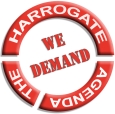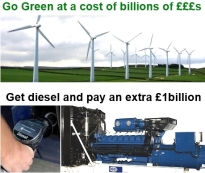Inspector Ken MacKaill, of West Mercia Police; Detective Sergeant Stuart Hinton, of Warwickshire Police; and Sergeant Chris Jones, of West Midlands Police are the three Police Federation representatives who gave a false account of the meeting they held with Andrew Mitchell over the so called ‘Plebgate’ affair.
Yesterday they collectively flicked Mitchell and the Independent Police Complaints Commission (IPCC) a middle finger, with a non-apology over their disgraceful, politically motivated actions when they knowingly lied while giving their version of events, in a press conference they called for the sole purpose of demanding that Mitchell resign.
We acknowledge the investigation’s criticism relating to our poor judgement in talking to the media following the meeting with Andrew Mitchell, for which we take this opportunity to apologise.
We would like to emphasise (as we did to the investigation) that in no way did any of us ever plan or intend to mislead anyone about what occurred during this meeting or otherwise.
Their ‘apology’ was only for talking to the media. They have refused to apologise for their conduct and their attempted deception. In effect, they are saying ‘Yes, we lied, what are you going to do about it?’ Now it is time these officers had the book thrown at them. They do not deserve to carry a warrant card. They have been shown to be dishonest.
Any person convicted of an offence on the contested evidence of any of these three officers, would seem to have sufficient grounds to appeal their conviction. The fact is Mackaill, Hinton and Jones lied. This has been proved by the secret recording made by Andrew Mitchell. There is no escape from this fact. They have demonstrated that their word as police officers cannot be trusted. They thought they could get away with lying about the discussion they had with Mitchell, a Cabinet Minister. So what else have they thought they could get away with in dealings with far more lowly people?
The public cannot have confidence in these officers – or their Chief Constables who are content to keep them in positions of power they have already shown they are willing to abuse. They have no credibility. They have no integrity. The public deserve better.
The fact that Mitchell took a recording device into the meeting before he had any certainty that these officers would lie, demonstrates he already had no confidence that they would tell the truth. If a Cabinet Minister is that suspicious of police, what message does that send to the rest of us?
At the same time the IPCC was, for once, telling it the way it is regarding the conduct of these three officers, there was another officer giving evidence into his shooting of Mark Duggan. An officer who, despite claiming he clearly saw a gun in Duggan’s hand, thus prompting him to fire, seemingly did not see that gun nestle some 10-20ft away, over a fence, from the scene of the shooting.
That officer’s evidence was contradicted by the previously silent cab driver, who told the court Duggan was trying to flee. In years gone by I would have accepted the officer’s evidence, relying on honesty and integrity. Today, not a chance. Not without irrefutable evidence to back up his assertion. From Hillsborough to de Menezes, dishonesty has become a stock in trade for too many officers, confident their colleagues will close ranks to shield them.
While minor in comparison, one consistent behaviour of many police officers up and down the country has reinforced my opinion. Namely, their dogged refusal to act on complaints of criminal actions by bailiffs.
Despite the law being clear that bailiffs cannot practice unless they are appropriately certificated by a judge and remain so, despite the law being clear that bailiffs are not allowed to misrepresent their powers to debtors, despite the law being clear that bailiffs must not threaten or intimidate debtors and despite the law being clear that bailiffs may only levy certain charges above the debt as set down in a schedule, not one bailiff who has broken the law pertaining to these rules and had a debtor file a complaint against them with police, has been arrested and prosecuted. This despite hundreds if not thousands of people having been victims of such criminal abuses.
That fact, moreso than any lie by a few bent coppers with an axe to grind about changes to police pay and conditions, demonstrates that trust in the police is not merely damaged, rather it has been completely broken. Broken because the police are selectively refusing to uphold the law when they consider the offender is on their side and the victim has it coming to them.
Perhaps this explains the determination of the Chief Constables of Mackaill, Hinton and Jones’ respective forces to not bring disciplinary action against these untrustworthy officers. Policing has become partial. Its supposed independence abused for self serving ends. Senior police officers repeatedly speak of policing by consent, but what far too many people in this country are experiencing daily is policing with contempt. The bobby on the beat has been replaced by the paramilitary plod – separate from the community and viewing it as an enemy to be suppressed.
We cannot accept this any longer. It is time to make a stand.






















What’s on your Mind?